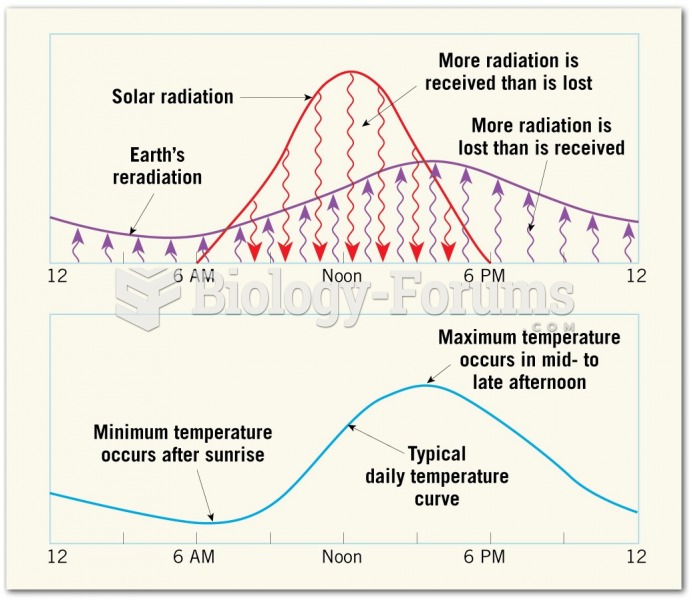This topic contains a solution. Click here to go to the answer
|
|
|
Did you know?
The most common treatment options for addiction include psychotherapy, support groups, and individual counseling.
Did you know?
Prostaglandins were first isolated from human semen in Sweden in the 1930s. They were so named because the researcher thought that they came from the prostate gland. In fact, prostaglandins exist and are synthesized in almost every cell of the body.
Did you know?
More than 4.4billion prescriptions were dispensed within the United States in 2016.
Did you know?
Autoimmune diseases occur when the immune system destroys its own healthy tissues. When this occurs, white blood cells cannot distinguish between pathogens and normal cells.
Did you know?
Earwax has antimicrobial properties that reduce the viability of bacteria and fungus in the human ear.







